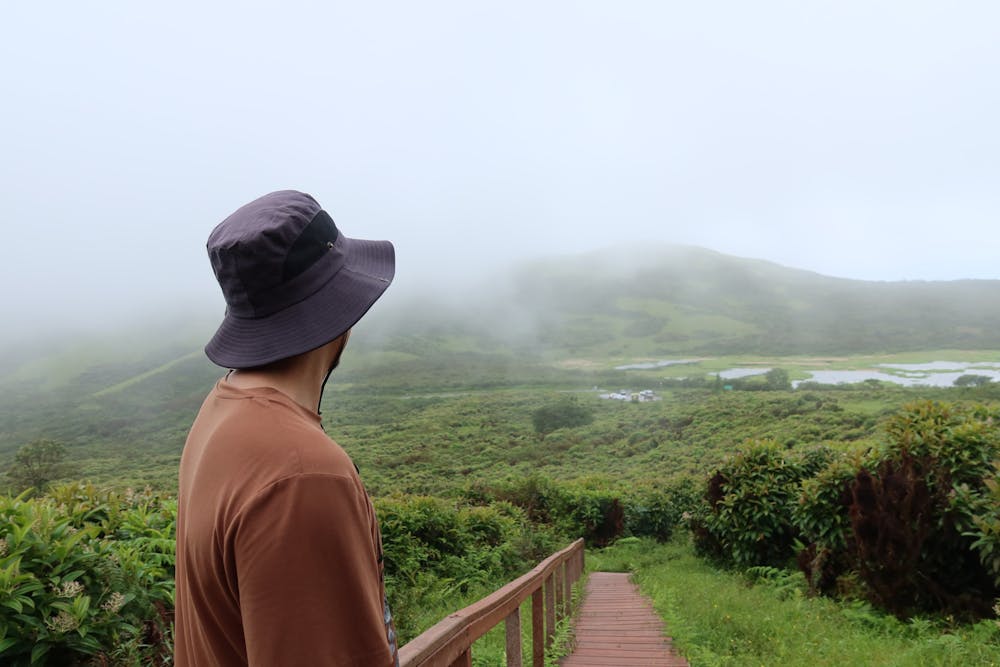Days after ringing in the new year, 18 students and two professors closed out their study abroad trip in Ecuador in an unexpected way — leaving amid a nationwide lockdown. The 60-day state of emergency, declared Jan. 8 when the notorious drug lord Adolfo Macías disappeared from prison, began while students were on-site for the U.Va. in Ecuador & the Galápagos Islands January Term. The state of emergency was extended Friday due to ongoing gang violence. Two months after their departure, students express mixed feelings about the trip, and the International Studies Office continues to evaluate whether the study abroad program will be reoffered next year.
Students were responsible for booking their own flights to and from Quito. They arrived individually at the capital city Dec. 29 and explored mainland Ecuador together before flying to the Galápagos Islands for the second part of their 13-day trip. The Environmental Thought and Practice course was taught by Erin Eaker and Rachel Most, assistant deans in the College of Arts and Sciences, in partnership with the program’s host university, Universidad San Francisco de Quito.
The lockdown was declared during the students’ farewell dinner in the Galápagos, one day before their flight back to mainland Ecuador. According to third-year Kinesiology student Covonna Bynum, the two professors relayed the Ecuadorian government’s announcement at the celebration.
“Our professors let us know that the country of Ecuador was on lockdown … and that there were a bunch of prison riots around the country,” Bynum said. “They told us, ‘U.Va. and USFQ have asked you guys to be back at the hotel.’”
The group returned to Quito under strict lockdown protocols. While the prison break had occurred in Guayaquil, about 200 miles away from their hotel, conflict was rampant as Macías’s disappearance triggered gang violence across the country. Students followed a nighttime curfew in place from 11 p.m to 5 a.m. and remained in their hotel near the airport until their flights back to the United States. Eaker said the ISO provided the professors with prompt advice on how to navigate the lockdown.
“When the state of emergency occurred, [the ISO] immediately contacted [the professors] to guide us through the situation,” Eaker said in an email to The Cavalier Daily. “We were very reassured by the way ISO supported us.”
Students said they felt safe when traveling as a group but became uneasy as they split up to depart on their own flights out of the country. Third-year College student Elizabeth McNiff said that once they were separated from their professors, students only stayed together if their flights happened to be the same. As someone who had to navigate the airport alone, McNiff said the University could have provided students with more information on how to handle airline disruptions from emergency personnel and reporters.
“My professors were amazing and were very conscientious of our emotions. They were really taking the brunt of everything,” McNiff said. “I really do wish that U.Va. had done more during and after the [lockdown] because it was really scary, especially having to travel on my own in a situation like that.”
Fourth-year College student Jane Ruggles had similar concerns. While she said her professors remained communicative with the group, she said that safety updates from the University would have been helpful during her departure, particularly as she experienced issues with her flight.
“Our professors were very informed on their own and kept really good communication with us,” Ruggles said. “But I didn't get any messages from U.Va., so there was some uncertainty, especially the day that we were leaving.”
Despite communication challenges, students were reassured by on-site safety measures arranged by the University. Students were protected by guides, contacts and other safety personnel on their outings before and after the prison break. Bynum said the group was supervised by a security guard in the Galápagos, which alleviated stress during their activities.
“We had a security guard with us when we were on school-mandated field trips … so that made me feel safe,” Bynum said. “I felt like [University personnel] were doing everything they could even though it felt like they were a world away.”
Students said their familiarity with Ecuador’s drug trafficking problems also put them at ease. According to Ruggles, news of the prison break did not come as a complete surprise, as many students had previously talked to local residents about Ecuador’s gangs.
“We had heard about the gangs before … from talking with local people,” Ruggles said. "So in a way, I wasn't really that surprised. It was shocking, for sure, but this was something that local people had talked to us about.”
The lockdown provided students with a newfound understanding of the political state of Ecuador. While students had entered the program expecting to explore Ecuador’s ecosystem, Ruggles said the exceptional circumstances immersed them in a dynamic political environment as well.
“It's definitely part of the experience,” Ruggles said. “I feel like I learned from [the state of emergency] — it was exposure to the sociopolitical conflicts that exist in other countries.”
As of Friday, Ecuador holds a level two travel advisory from the U.S. State Department — a designation that warns travelers to exercise increased caution. According to the University’s Policy on Student International Travel, the University may limit or prohibit University-related travel to areas with level three or level four travel advisories. University policy does not mention travel restrictions on areas with level two advisories.
The University has not released updates on the Ecuador January Term, but Eaker said the ISO is reassessing the safety of the program before allowing future trips to take place. Students remain hopeful that the course will be offered again once gang-related violence subsides.
“Right now, in the current political context, I would not go back,” Ruggles said. “But in the future, if this is resolved … I would totally recommend it because it was so fun up until the end.”







